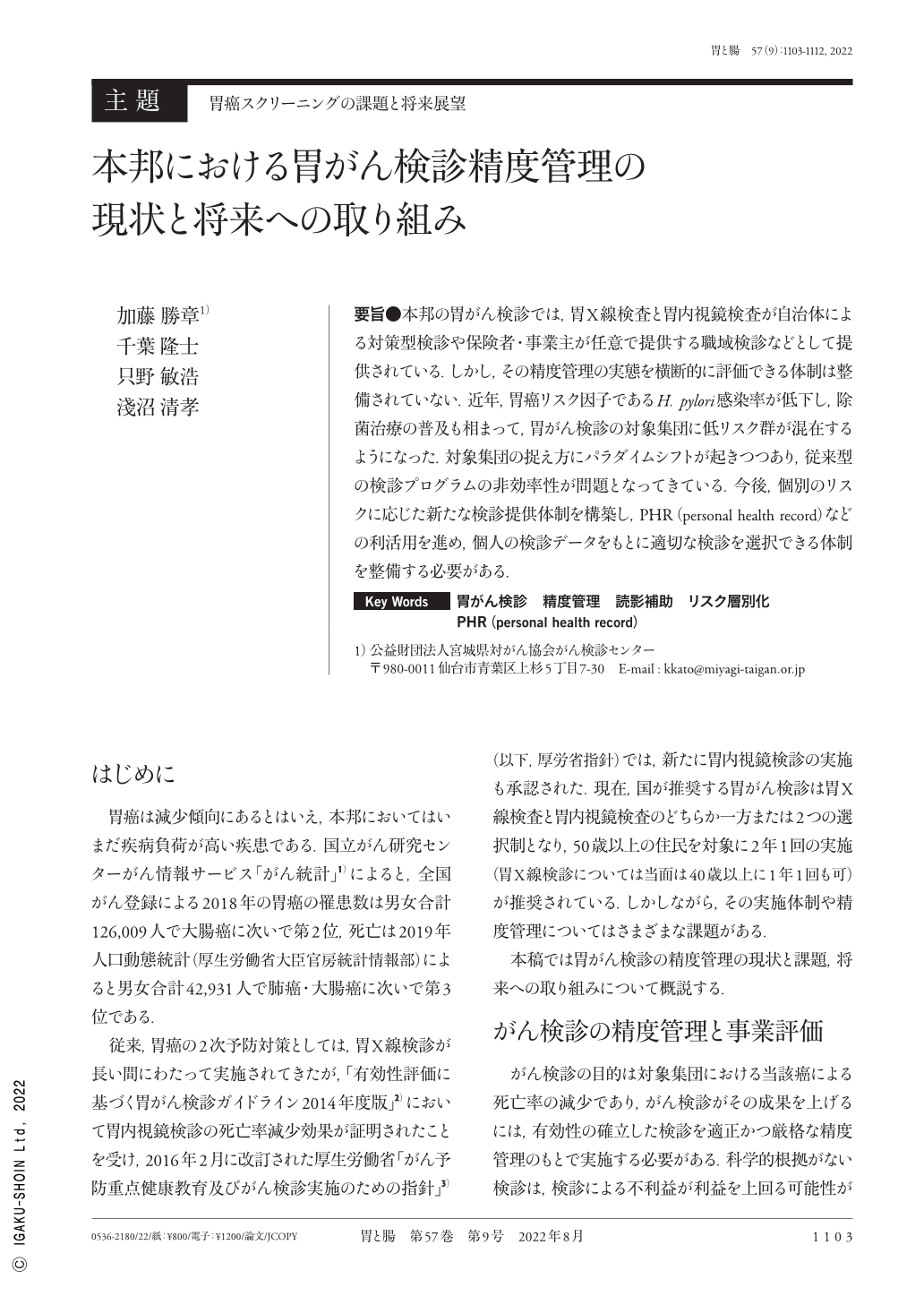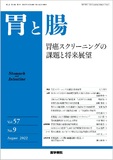Japanese
English
- 有料閲覧
- Abstract 文献概要
- 1ページ目 Look Inside
- 参考文献 Reference
要旨●本邦の胃がん検診では,胃X線検査と胃内視鏡検査が自治体による対策型検診や保険者・事業主が任意で提供する職域検診などとして提供されている.しかし,その精度管理の実態を横断的に評価できる体制は整備されていない.近年,胃癌リスク因子であるH. pylori感染率が低下し,除菌治療の普及も相まって,胃がん検診の対象集団に低リスク群が混在するようになった.対象集団の捉え方にパラダイムシフトが起きつつあり,従来型の検診プログラムの非効率性が問題となってきている.今後,個別のリスクに応じた新たな検診提供体制を構築し,PHR(personal health record)などの利活用を進め,個人の検診データをもとに適切な検診を選択できる体制を整備する必要がある.
In Japan, municipalities provide population-based screening for gastric cancer with X-ray and endoscopy, insurers and employers provide opportunistic screening, and so on. However, no crosscutting, accuracy control system has been established to assess their actual situation. Recently, the rate of Helicobacter pylori infection, a risk factor for gastric cancer, has decreased and its eradication treatment has become widely available ; moreover, the low-risk groups have been mixed into the target population for gastric cancer screening. The conventional screening program's inefficiency is becoming an issue as a result of a paradigm shift in the way the target population is perceived. In the future, it will be necessary to establish a new system for providing screening based on individual risk and develop a system that allows the selection of appropriate screening based on individual screening data by promoting the use of digital personal health records.

Copyright © 2022, Igaku-Shoin Ltd. All rights reserved.


